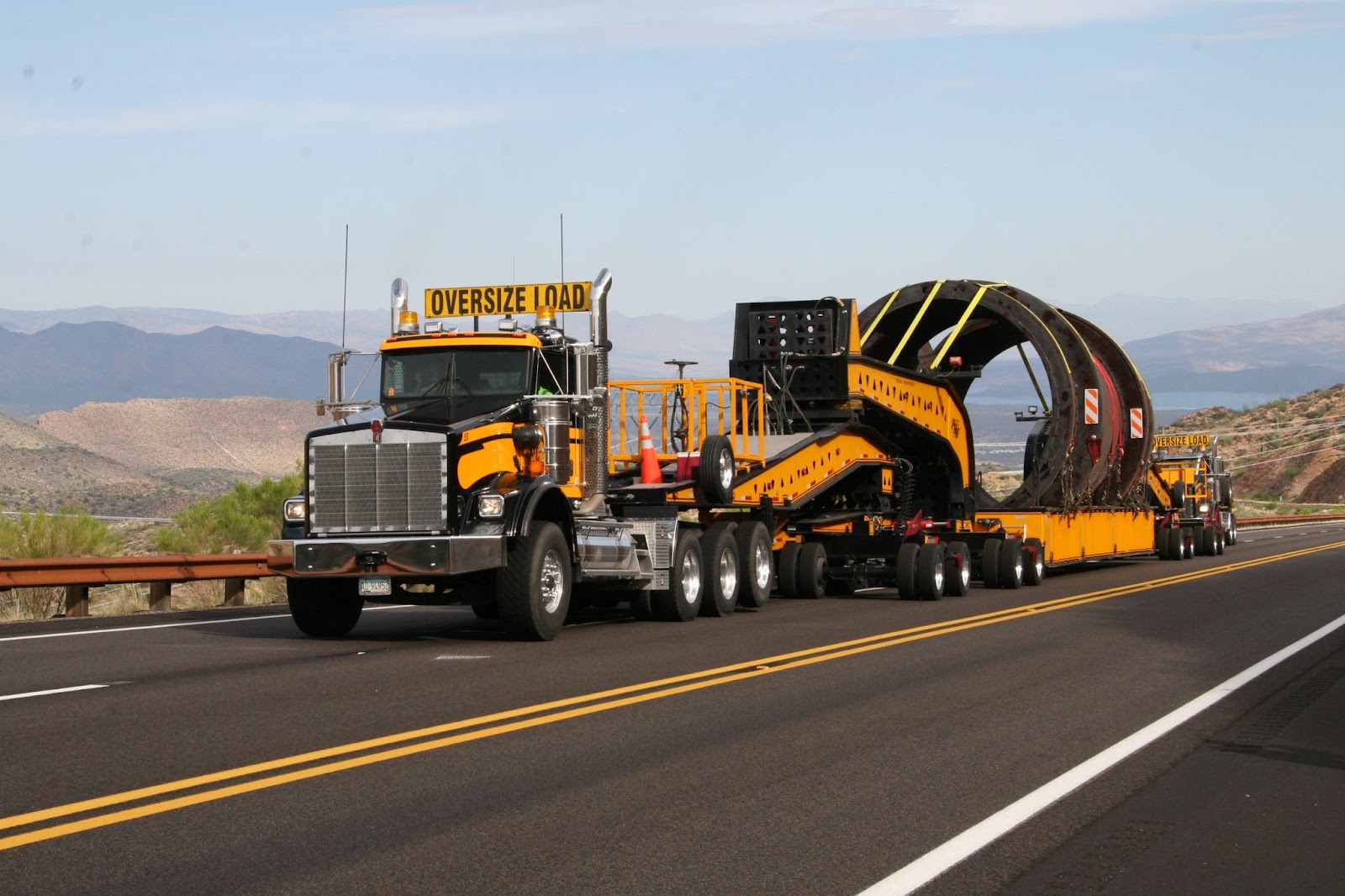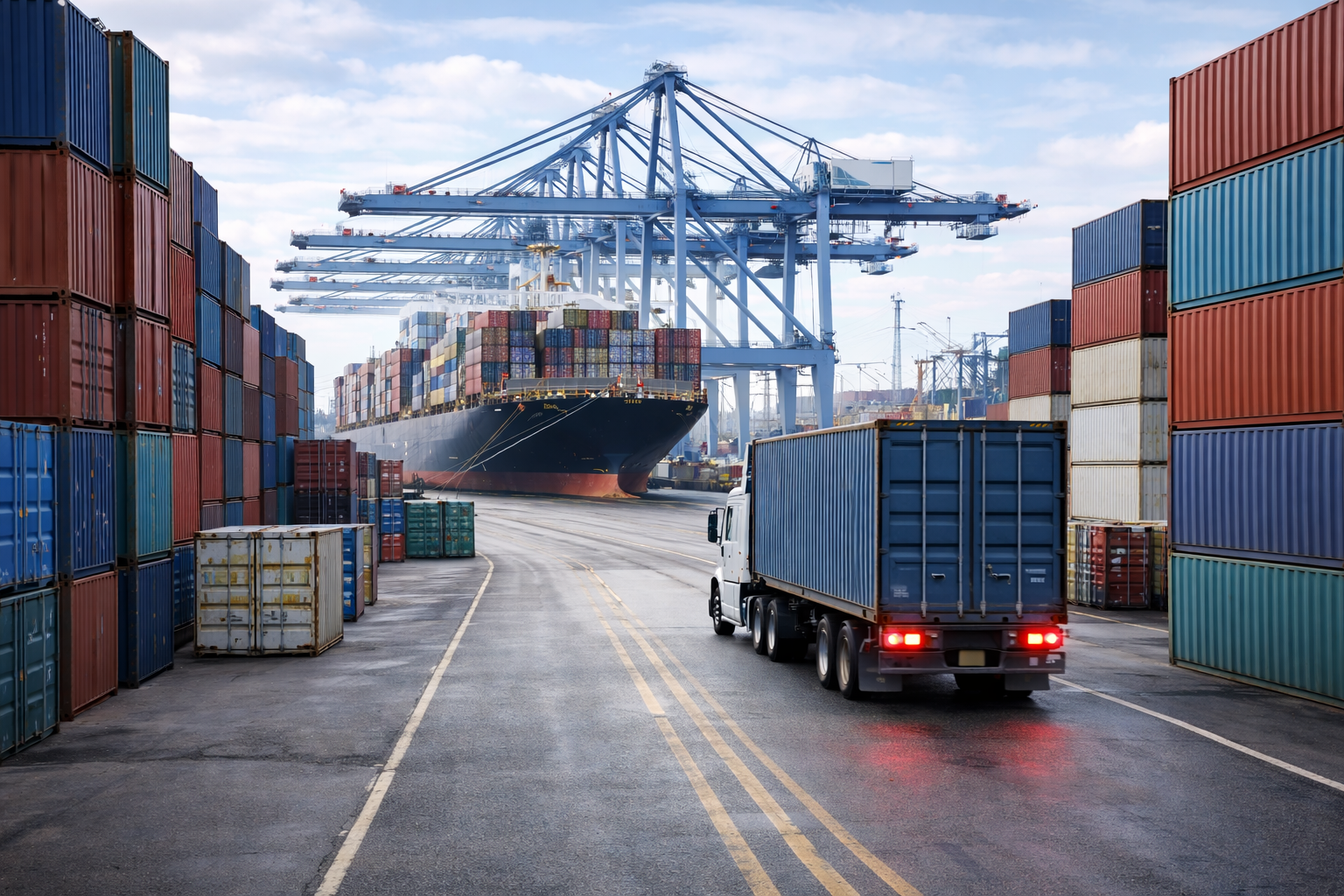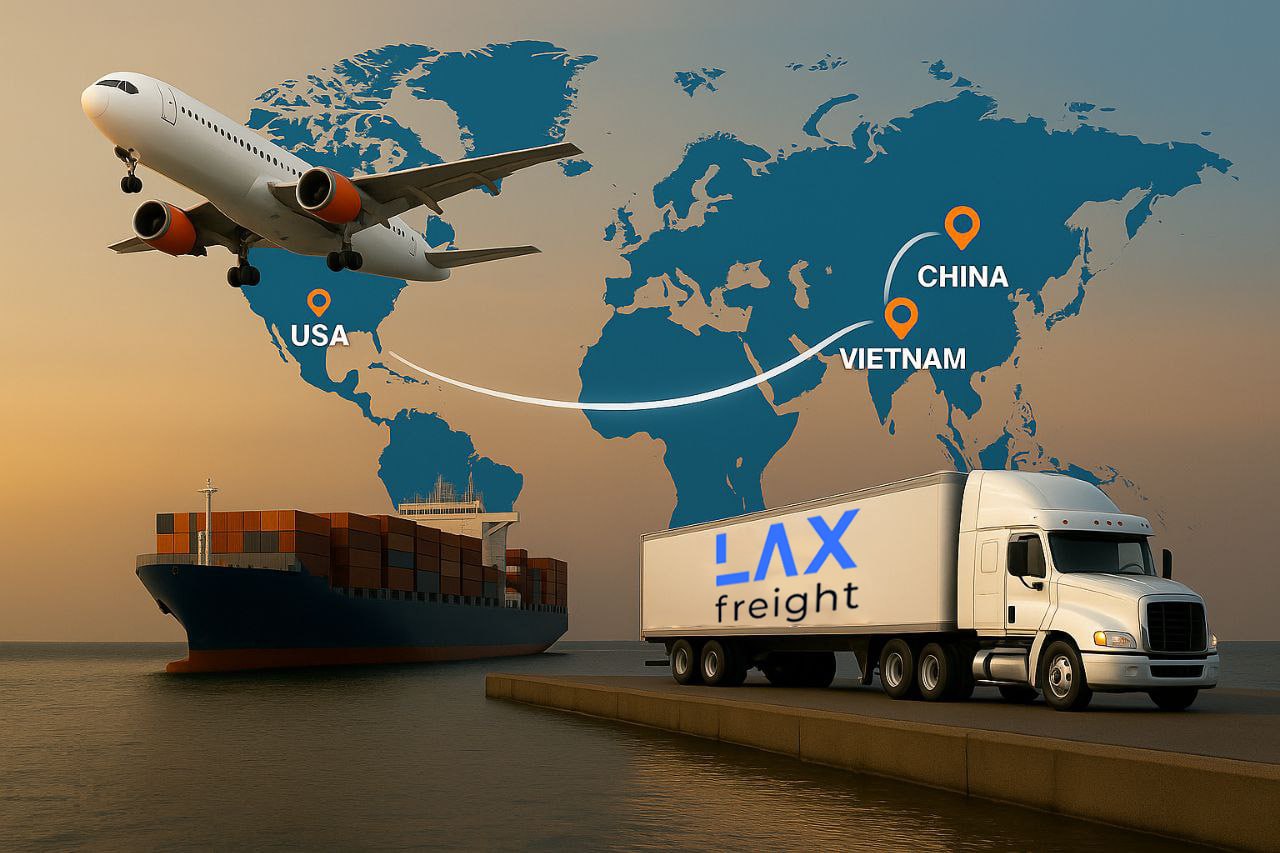Heavy-haul trucking provides services of shipping the bigger and heavier cargo. This part of trucking has its own advantages and challenges. The article outlines the main aspects of this branch, the common cargo types, and the benefits of such shipment agreements.
What Does A Heavy-Haul Trucking Mean?
A heavy-haul trucking is a part of the logistics sector that provides services for shipping the cargo which exceeds regular size and weight limits. These items include industrial equipment, military or farming machinery, and construction elements. This trucking branch plays a significant role for the sectors as the construction, energy, and manufacturing industries.
This type of shipments requires thorough planning and coordination and specialized equipment to ensure safe and timely delivery. In particular, it’s essential to identify road obstacles such as low bridges or narrow roads, and use specific types of trailers. Sometimes, these shipments have escort vehicles or pilot cars to navigate the load in the traffic and ensure the safety of the cargo, the driver, and other road users.
What is A Heavy Load?
A heavy load is a cargo that is bigger compared to the goods for regular shipping. Specifically, the limits for regular cargo are: 80,000 pounds of weight (both the truck and its cargo), 8.5 feet in width, 13.5 feet in height, and 53 feet in trailer length. If an item exceeds these dimensions and weight, it’s classified as a heavy load.
Types of Cargo in Heavy Hauling
- Construction equipment: excavators, cranes and loaders.
- Industrial machinery: milling machines, presses, assembly line components, etc.
- Wind farms elements: turbine blades, nacelles and towers.
- Oil and gas equipment: drilling rigs, pipeline, and refinery parts. Often, items for this sector are needed to be transported to remote locations that raises additional challenges.
- Prefabricated structures, such as modular homes and bridge parts.
- Military equipment, tanks, and armored vehicles that often require discreet transportation.
- Agricultural equipment: tractors, combine harvesters and other massive machinery for farming.
- Oversized heating items, ventilation and air conditioning units.
- Mining equipment: crushers, conveyors, and drilling rigs.
- Aircraft parts, fuselages, wings, and engines.
Benefits of Work With Heavy Haul
Apart from the responsibilities, heavy-haul transportation offers several advantages for workers who chose this branch.
- Higher earnings potential. Amid the specialized work and equipment, heavy haul trucking specialists receive higher revenue salaries that reflect the additional skills, training, and responsibilities.
- Specialized market niche. The heavy-haul sector allows an opportunity to carve out a niche market. It can lead to less competition and the ability to build a good reputation for expertise in challenging shipments.
- Job security. Sectors such as construction, manufacturing, and energy often need heavy-haul services. This ensures steady demand and a reliable stream of work.
- Opportunities for independence. Many heavy-haul truck drivers are also owner-operators, that provides greater flexibility and income.
- Comprehensive benefits package. Companies in heavy-haul trucking offer more benefits to attract skilled drivers. For example, the benefits may include health insurance, retirement plans, and performance bonuses.
What Trailers Are Suitable for Heavy Haul Trucking?
Heavy-haul transportation needs specific types of trailers. Furthermore, different cargo types require particular characteristics of a trailer. For safe transportation, it’s important to choose a suitable model according to the cargo’s dimensions, weight, and particular requirements.
Flatbed trailers
These trailers are used for shipping irregularly shaped cargo. A flat open deck simplifies loading and unloading of the goods that is a good feature for machinery, construction materials and other oversized cargo.
Step deck trailers
Step deck trailers provide additional height clearance for taller loads. This type suits taller equipment that can’t be placed on a flatbed.
Double drop trailers
Double drop or lowboy trailers have a well in the middle. It allows transportation of tall cargo, including industrial machinery and large construction items.
Extendable trailers
This type of trailer includes flatbeds and double drops that can be lengthened. They can be used for elongated goods transportation, such as wind turbine blades or bridge parts.
Multi-axle trailers
Such trailers are equipped with additional axles that provide even weight distribution. This feature reduces the risk of road damage during the shipping of extremely heavy items.
Removable gooseneck trailers (RGNs)
This type of trailer has a detachable front that can be dropped to the ground. It creates a ramp for easy loading of heavy machinery and vehicles.
Modular trailers
Modular or platform trailers consist of interlocking segments that can be adapted to various cargo shapes and sizes. Because of this, they can be used for the most challenging heavy-haul freight, such as huge and oversized items.
Who Drives Heavy Loads?
A Commercial Driver’s License (CDL) is a main license for all truck drivers. Still it covers some required skills for heavy load shipments, obtaining of the additional endorsements is needed. It includes skills of operating specialized equipment, handling oversized and overweight loads, and navigating challenging routes.
The skills required for heavy-haul shipments include:
- An understanding of state and federal laws;
- Knowing of escorts coordination;
- An understanding of route planning;
- Know how to obtain the necessary permits.
Heavy-haul loads also require physical and mental stamina and attention to detail. Drivers must conduct regular inspections of the cargo and ensure compliance with regulations. The ideal heavy haul driver is constantly updated in industry development and enhances their skills to ensure safe and efficient transporting.
Equipment and Technology for heavy haul trucking
Apart from specialized trailers, heavy-haul trucking relies on advanced technologies that also ensure safety on the roads. These instruments ensure efficient shipments and compliance with regulations.
Trucking technologies for heavy-haul transportation cover several aspects. GPS and telematics systems provide route planning and vehicle performance monitoring. Load monitoring systems help to ensure that cargo is securely fastened during transportation, while communication tools provide constant communication between drivers, dispatchers, and escort vehicles.
Load-securing equipment includes heavy-duty chains, straps, and custom cradles for firm cargo fastening. Winches and hoists are used during loading and unloading activities.
Key regulations governing heavy haul trucking in the US
Compliance with rules and laws is significant for the trucking sector, especially for heavy-haul branches. Each state has rules, maximum height, weight restrictions, and required safety equipment. Drivers and carriers must be aware of these rules before starting the shipment.
The US also sets federal laws for heavy-haul shipments. Specifically, the Federal Motor Carrier Safety Administration (FMSCA) sets standards for required driver qualification, allowed hours of service, and vehicle maintenance.
Obtaining permits for heavy cargo shipping can be complex, but drivers can use compliance software and permit management systems to simplify the process. The permits provide temporary exceptions from standard restrictions and specify routes based on factors such as bridge capacities and clearance heights.
Conclusion
Heavy-haul trucking is a significant part of various industries that need shipments of oversized and overweight cargo. Each type of heavy cargo requires a specific trailer and shipping requirements. This aspect of trucking also requires experienced drivers, thorough planning and Technology use, and compliance with state and federal rules.
LAX Freight can help you with an oversize trucking, providing brokerage services and cooperation with different partners to find the ideal route and carrier for you.
Reach out today to learn more about our service!



